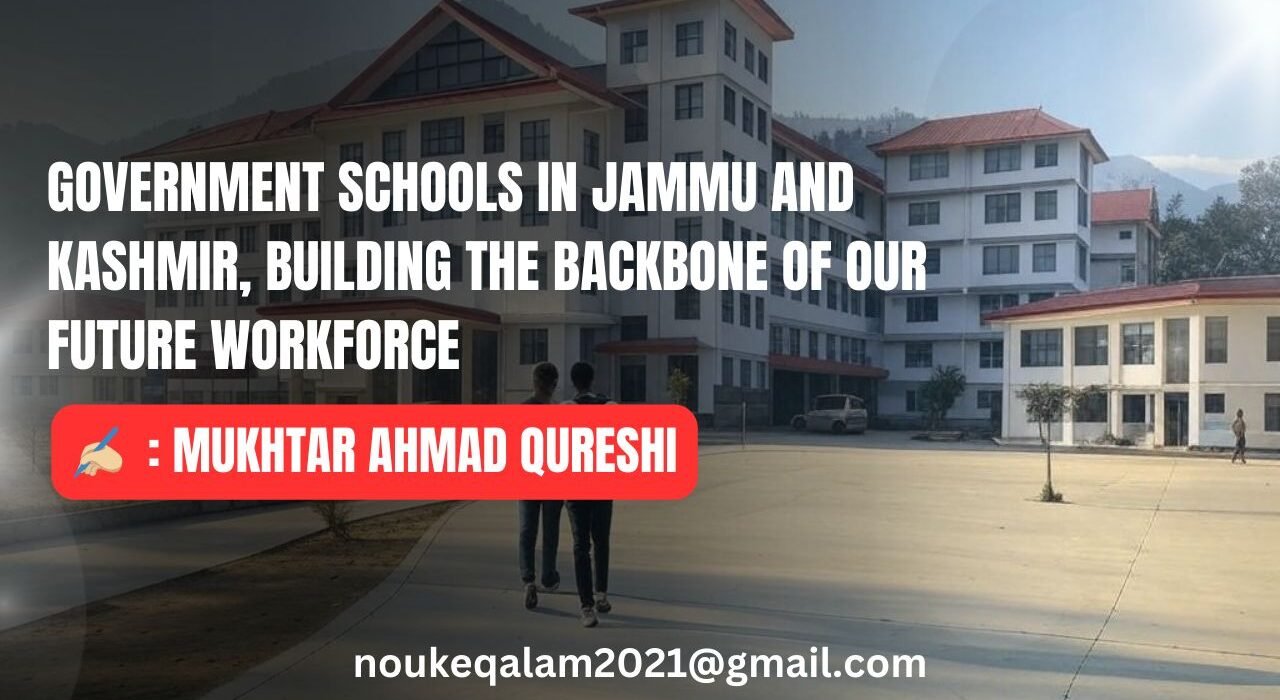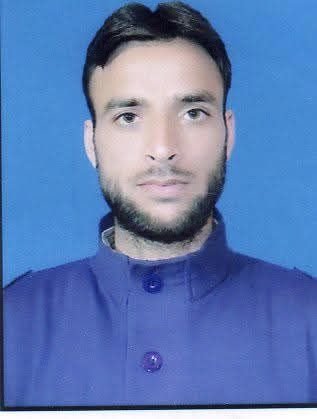In regards to education in Kashmir, we cannot help but ask ourselves why we all try so desperately to get our children into private school while simultaneously secretly hoping they turn out to end up working for the government. It is an odd paradox. To one side is the private school as a representation of quality education, and to the other, government job is the dream of every family. Listen, I would say government schools or public schools are the door to closing the gap.
Government schools in Kashmir have experienced a radical change over the last few years. Government schools are no longer all about books and chalkboard anymore. They are implementing the National Education Policy (NEP) 2020 and National Curriculum Framework (NCF) 2023 guidelines with renewed energy. If you walk into a government school these days, you might find yourself surprised. Smart labs, model kindergartens, and ICT based education equipment laden classrooms. The infrastructure is no longer sadly antiquated. Instead, it is being implemented to provide an inspiring and effective learning environment.
You can ask yourself, what is so different about government schools today? The change is not only in the infrastructure but also in the holistic method of learning. Government schools are not just places where students learn to memorize. They are focused on overall development of the students, ranging from vocational skills to life skills. This is quite imperative in this competitive era, where hands on learning and flexibility are as important as grades.
When we talk about how to prepare our children for the future, it is not enough for them to memorize from textbooks. They need critical thinking, problem solving, and the ability to react to new situations. Government schools, with initiatives like FLN (Foundational Literacy and Numeracy) and NIPUN Bharat, are laying a strong foundation. These schools are not just imparting the ABCs and 123s but are all about ensuring that every child is well equipped with skills to excel in further studies and life.
One of the biggest advantages of government schools are their highly qualified teachers. Some of these teachers are not just degree holders but are also constantly trained to renew themselves with latest teaching techniques. I have seen government school teachers utilizing technology to add to the interactive aspect of lessons, using smart boards and digital resources to make subjects more engaging. These schools offer an equal balance of traditional and modern schooling so that children are not falling behind in today’s technological times.
Government schools are equally diverse. Unlike the majority of private schools, they do not cater to just a particular economic class. They offer quality education to children of all kinds. This multicultural environment is invaluable since it teaches students tolerance, socialization and the importance of equality, survival skills that are just as important as academic achievements.
One of the significant transformations in government schools is the setting up of model kindergartens. Early childhood care and education (ECCE) is a crucial stage of education, and government schools are pioneering by opening systematic, activity based learning centers. These kindergartens have been founded on NEP 2020 guidelines, and they focus on play, exploration, and experiential learning, which are essential for cognitive and emotional development.
It is time we shatter the notion that success is only possible if one studies in private schools. We all know IAS and IPS officers who started their schooling life in government schools. They are not anomalies but pointers towards the capability of these schools. If government schools can provide such achievers, why not treat them with respect they deserve?
Awareness is something I am very strong on. We need to initiate awareness programmes at all levels, with the parents, students, and the general public. Parents are mostly not aware of the infrastructure in government schools. They may not know that they have smart labs where children learn by experimenting and from computers or that model kindergartens offer early education as good. Through spreading this awareness, we can shift attitudes and encourage more families to consider government schools as a first choice rather than an absolute last resort.
We, as a people, need to start a dialogue on why government schools are beneficial. We can organize school tours, share success stories, and have interactive sessions in which teachers, parents, and children can speak about their experiences. The government can also do its part by promoting these successes through media and community programmes. If we all come together, we can shift the narrative and help build confidence in our government schools.
You might ask, why is it so important? The answer is simple, education decides our future workforce. Government schools are not just institutions where children learn how to read and write. They are shaping the future professionals, leaders, and citizens. By choosing government schools, we are not just betting on our kids’ education but also on the future of society.
Imagine a Jammu and Kashmir where our children study well in government schools and become respected professionals. Imagine the pride of having young minds, educated in public schools, doing great things. It is not a fantasy but very much a reality. But for this to be a reality, we need to free ourselves from outdated stereotypes and see the reality of what our government schools can provide.
It is about time we gave our government schools in Kashmir the credit they deserve. They are no longer the stepchildren of the education industry. With their focus on multifaceted growth, skilled instructors, the best infrastructure facilities, and following national educational norms, they are better placed to provide our youngsters a sound start. Let us take this opportunity to rally around our public schools, champion their benefits, and change the mindset that school quality is only linked to private schools.
I encourage you to take a closer look at your government school nearby. Go, mingle, and watch the changes that are taking place in front of you. In choosing government schools, we are choosing a bigger and more even better future for all. Let’s build this infrastructure with and among ourselves and build not only a stronger workforce for ourselves but make the very core of our society stronger.
(Writer is a Teacher, Author, Writer and Columnist Hails From Boniyar Baramulla and He Can be reached at Mukhtar.qur@gmail.com )






